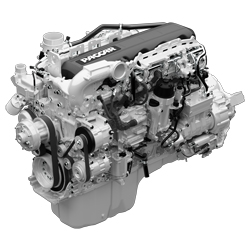U2697 Engine Code Repair
Meaning of U2697 engine trouble code is a kind of network trouble code and when your car's 'U2697 Check Engine' light comes on, it's usually accompanied by a sinking feeling in the pit of your stomach. The light could mean a costly problem, like a bad catalytic converter, or it could be something minor, like a loose gas cap. But in many cases, it means at minimum that you'll be visiting the car dealer to locate the malfunction and get the light turned off.
U2697 Fault Symptoms :
- Check engine light comes on
- Engine stalling or misfiring
- Engine performance issues
- Car not starting
If one of these reasons for U2697 code is occuring now you should check U2697 repair processes.
Now don't ask yourself; What should you do with U2697 code ?
The solution is here :
U2697 Possible Solution:

Excessive air inflow can be caused by a vacuum leak, a dirty sensor or, an exhaust gas recirculation valve not closing properly. If the problem is not enough fuel, the culprit may be dirty injectors or fuel filters, a weak fuel pump or a leaky fuel pressure regulator. The lean fuel mix error may be accompanied by rough idling, engine misfires, hesitation during acceleration and overall poor engine performance.
U2697 Code Meaning :
U
OBD-II Diagnostic Network (U) Trouble Code For Engine
2
Fuel And Air Metering (Injector Circuit Malfunctions Only)
6
Fuel Composition Sensor Circuit Malfunction
9
Ignition/Distributor Engine Speed Input Circuit Malfunction
7
Ignition Coil A Primary/Secondary Circuit Malfunction
The oxygen (02) sensors on your car measure the oxygen in the exhaust to determine how rich or lean the ratio of fuel and air are in the cylinders. Optimizing this mixture means better fuel economy and fewer exhaust emissions.
U2697 OBD-II Diagnostic Network (U) Trouble Code DescriptionU2697 engine trouble code is about Ignition Coil A Primary/Secondary Circuit Malfunction.Main reason For U2697 CodeThe reason of U2697 OBD-II Engine Trouble Code is Fuel Composition Sensor Circuit Malfunction. |
U2697 DTCs may also be triggered by faults earlier down the line. For example, a dirty MAF sensor might be causing the car to overcompensate in its fuel-trim adjustments. As a result, oxygen sensors are likely to report fuel mixture problems.
